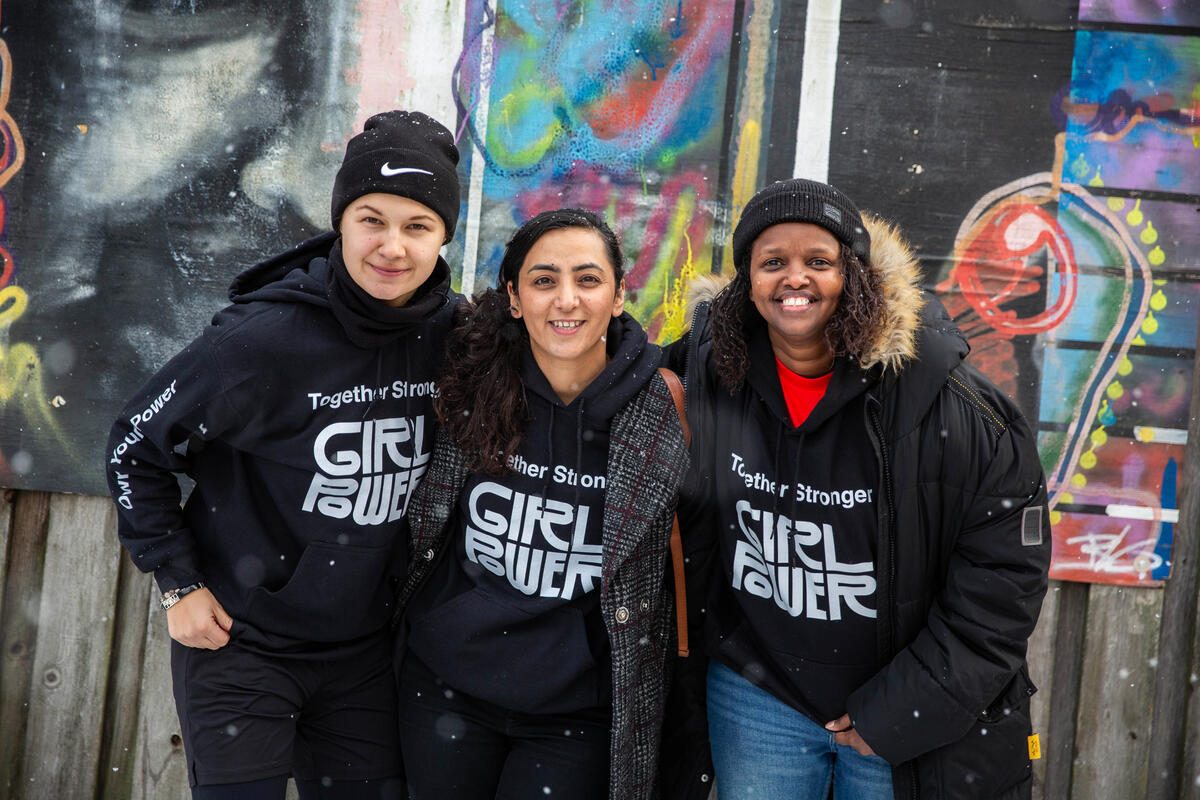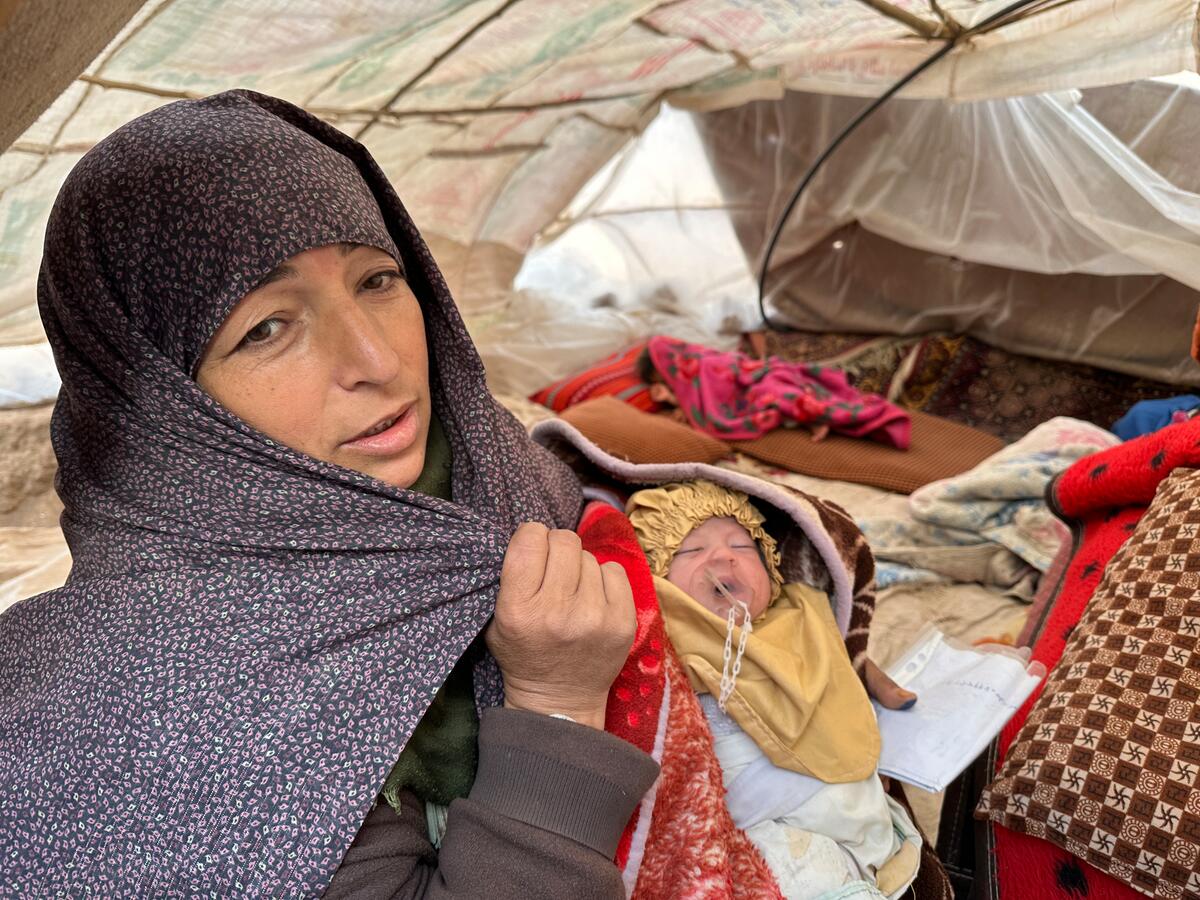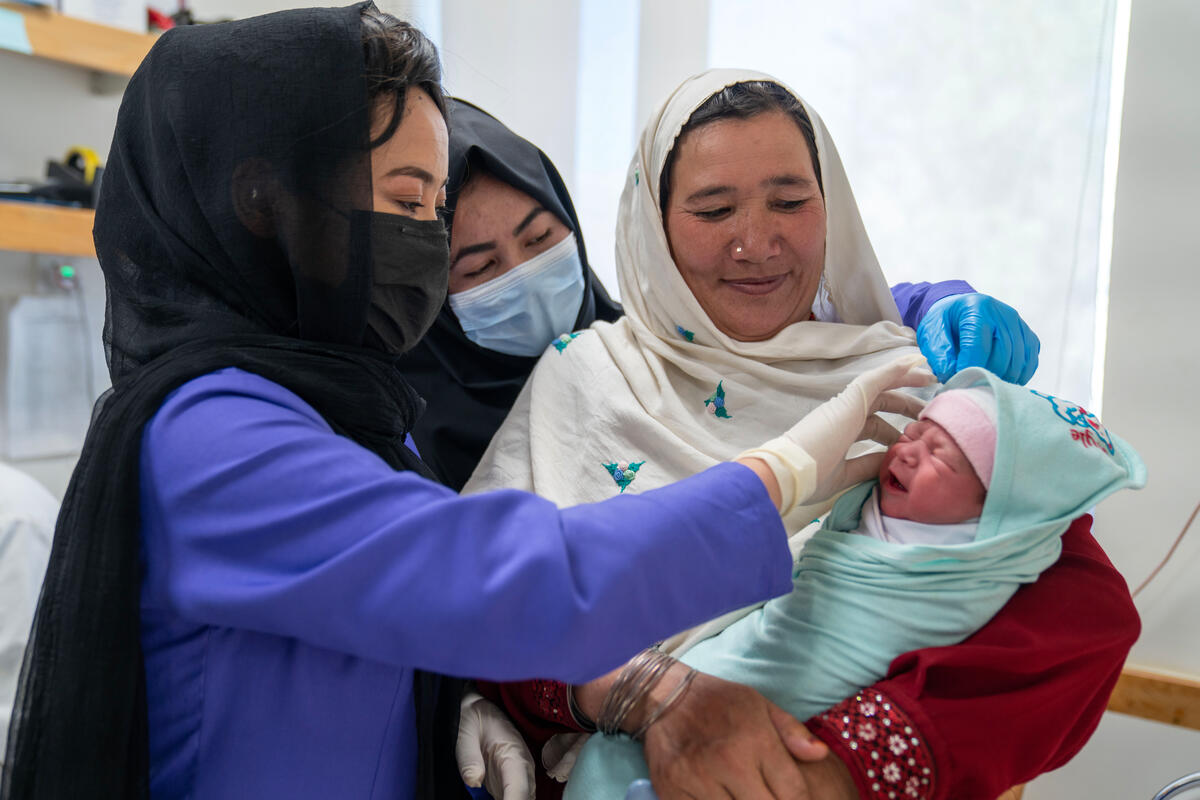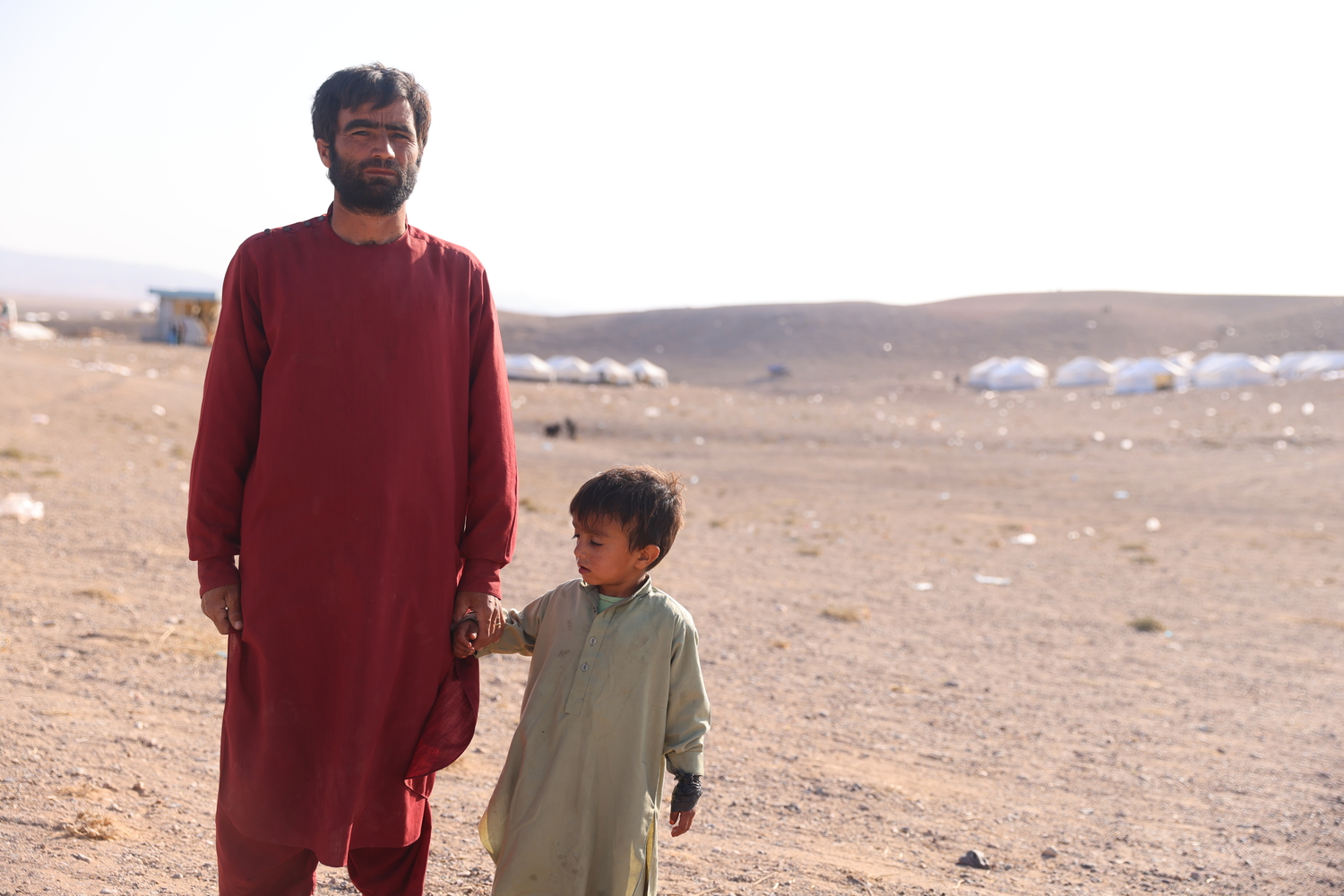Afghanistan Humanitarian Update No. 64
Afghanistan Humanitarian Update No. 64
August 9, 2002
At A Glance:
- Fast repatriation forces cutbacks
- Iran grants UNHCR access to detained Afghans
- Returns from Pakistan decrease
- Solution in sight for stranded Afghans
- Shelter programme underway
Fast repatriation forces cutbacks
The U.N. refugee agency (UNHCR) plans to reduce some assistance to Afghans in order to better cope with the unexpectedly large number of repatriating refugees.
Returnees will continue to receive transport assistance ranging from $5 to $30 per person, family kits containing a plastic tarpaulin, soap and hygienic items, and wheat flour from the U.N. World Food Programme (WFP). But starting August 15, the U.N. refugee agency will halt its distribution of blankets, jerry cans and buckets to families returning under its repatriation initiative. The agency has already halved its shelter programme from a planned 97,000 units to some 41,000.
UNHCR still requires more than $40 million through December 2002 to meet its $271 million, 15-month budget. WFP is similarly short of funds. Other agencies have experienced serious funding problems due to Afghanistan's vast needs. More funds for Afghanistan to speed reconstruction and development beyond the amounts pledged at Tokyo would help meet the needs faced by returning refugees, a movement that has exceeded all expectations.
The change in UNHCR's assistance package will ensure that refugees voluntarily repatriating under the UNHCR / Afghan Transitional Authority initiative get at least some relief items and transport assistance. The reduction is also necessary so that UNHCR can stockpile items in case urgent needs arise.
Over the coming weeks, UNHCR will consolidate remaining aid supplies (including blankets and jerry cans) to ensure a stand-by stockpile for a quarter of a million people. Half the planned stockpile will be stored in Kabul and the remainder at the agency's sub-offices throughout Afghanistan. Smaller stocks will be kept in neighbouring countries in case of emergencies.
Iran grants UNHCR access to detained Afghans
Iran's Bureau for Aliens and Foreign Immigrants (BAFIA) has decided to give UNHCR access to detention centres throughout Iran where Afghan nationals threatened with deportation are held, and will permit UNHCR to establish a screening programme to review their asylum claims.
The agreement was reached during a meeting on Wednesday between UNHCR's Chief of Mission, Philippe Lavanchy and the Director General of BAFIA, Ahmad Hosseini, in Tehran.
Under the agreement, described by Lavanchy as a "significant development", UNHCR will have access to detention centres throughout Iran where Afghan nationals threatened with deportation are being held, and will be able to conduct interviews with anyone who may have an asylum claim.
"UNHCR's mandate is two-fold, to protect bona fide refugees and to assist them," Lavanchy said. "Under the agreement reached with BAFIA, we will now be in a position to identify genuine refugee cases who are at risk of being deported and, therefore, fulfil that key protection element of our mandate."
BAFIA has assured UNHCR that Afghans found by the UN refugee agency to be holders of valid documents will be released unconditionally, and that undocumented Afghans considered by UNHCR to have a valid case for refugee status under the new screening programme will be permitted to remain in Iran.
UNHCR is currently making arrangements to implement the screening process in cooperation with BAFIA.
The agreement comes just days before an August 11 deadline - announced by Iranian officials last month - for all unregistered and undocumented Afghans to register with the government and obtain exit permits to leave Iran.
"The August 11 deadline does not apply to documented Afghans," Lavanchy stressed. "Nor does it change the terms of the UNHCR-assisted Voluntary Repatriation Programme, which provides for the repatriation of 400,000 Afghans - both documented and undocumented - in the first year of the operation."
The joint programme on voluntary repatriation - which was signed in Geneva last April by UNHCR, the Iranian government and the Afghan authorities - states that all Afghans in Iran should have access to UNHCR-assisted repatriation services. By implication, that includes those who are registered with the Iranian authorities as well as those who are not.
More than 124,000 Afghans have returned from Iran since UNHCR and BAFIA started the voluntary return programme last April.
Returns from Pakistan decrease
UNHCR this month began cutting back its processing of Afghans seeking to leave Pakistan under the voluntary return programme that began in March. The decision to scale down hours at UNHCR Voluntary Repatriation Centres (VRCs) in Pakistan was taken to match the declining level of returns since May.
The number of returnees from Pakistan has surpassed 1.3 million - more than three times the 400,000 people Pakistan's government and UNHCR anticipated would opt to repatriate this year. It now appears that the peak period of returns from Pakistan has passed after hitting a high in May, when more than 375,000 refugees went home. More than 277,000 people returned from Pakistan in July.
Two VRCs, Azahiel near Peshawar and Burhan near Islamabad, were closed on August 1. Tahktabaig, the busiest centre, located near at Peshawar, and Baluchistan Province's Baleli centre are now open only four days per week. Three other centres - in Islamabad and Karachi - are now operating five days a week. During the height of the returns, the centres operated six days weekly.
Solution in sight for stranded Afghans
Last week, UNHCR took 80 representatives of the more than 25,000 Afghans stranded just inside Pakistan's border at Chaman to see a new temporary camp being set up west of Kandahar.
Following this go-and-see visit, representatives of about 400 families displaced from Jozjan Province in northern Afghanistan said they wanted to move immediately to Zhare Dasht. They said they felt that since they do not yet feel ready to go home, they hope to receive better assistance at Zhare Dasht.
Thousands of Afghans became stuck last February in a makeshift encampment just inside Pakistan's frontier at Chaman when the government refused permission for UNHCR to move them to its camps in the border belt.
UNHCR plans to begin the voluntary relocation of the Afghans at Chaman and from the four IDP (internally displaced persons) camps around Spin Boldak over the coming weeks. Other Afghans said they still hoped for stability in the north, where people have reported harassment during recent months against ethnic Pashtuns. But they are considering moving to Zhare Dasht if the situation does not improve in the near future.
There are some 30,000 IDPs at Spin Boldak living in appalling conditions, and several aid agencies have withdrawn from the area.
UNHCR will continue to assist those Afghans who wish to return to their villages with transportation and returnee packages. People who do not feel safe enough to return will be voluntarily relocated to Zhare Dasht, an operation that has been requested by the governments of both Afghanistan and Pakistan.
Shelter programme underway
Winter is already on the minds of the more than 1.6 million Afghans UNHCR and the Afghan Transitional Authority have helped to return home so far this year - more than 1.4 million refugees and over 200,000 former IDPs.
Many of the recent returnees have gone back to destroyed homes and villages and need shelter before winter arrives, in only three or four months. This year, UNHCR is working to provide shelter for up to 400,000 returnees in rural areas under a $38 million initiative.
To shelter the most needy returnees, UNHCR and its NGO partners are distributing some 41,000 shelter kits. The U.N. refugee agency originally planned to distribute 97,000 kits this year. But with the number of Afghans heading home exceeding expectations, the shelter programme had to be reduced to ensure adequate funds for travel assistance. Challenges also arose in finding partners to implement the ambitious programme.
To get the shelter kits into the field, UNHCR has made agreements with 15 NGO partners to identify needy families and distribute the kits. Each kit contains 20-30 wooden poles, a door and two window frames, in addition to the necessary nails and tools.
In Kabul Province, where areas like the Shomali Plain were devastated by years of war, the agency has so far identified partners who can distribute 14,300 shelter kits. Others are going into eastern Afghanistan, where UNHCR is sending at least 10,500 kits. Northern Afghanistan around Mazar-i-Sharif, will receive at least 8,000 kits, while western areas around Herat will get some 7,000. Kandahar will get some 1,200 kits, and the region around Ghazni - between Kandahar and Kabul - will receive at least 750 kits.
UNHCR has already shipped 240 metric tons of nails to distribution points throughout Afghanistan, along with 240,000 door hinges and tens of thousands of tool kits, each containing a hammer, shovel and pickaxe.
From outside South Asia, the U.N. refugee agency has purchased 40,000 cubic metres of timber for some 35,000 kits of which more than 13,000 cubic metres has already arrived in Pakistan ports and is being trucked into Afghanistan. Supplies for 6,000 shelters are being procured regionally along with material like doors, windows and latrine pipes. The programme also includes funding for local carpentry workshops where Afghan craftsmen are building the doors and windows.
Families participating in the initiative will make the necessary mud bricks themselves. Once they've rebuilt their homes up to about shoulder height, UNHCR's NGO partners will then hand over the kits so that returnees can construct the roof and the necessary support beams. In some regions such as Bamyan and the Shomali Plain, families have been given tents for use while rebuilding. All the refugees going home under the UNHCR / Transitional Authority initiative have already received two plastic tarpaulins in their returnee packages.








